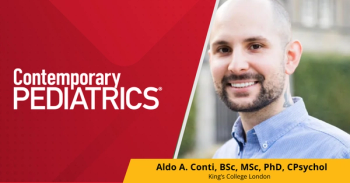
Are kids being considered in the health care reform arena?
Child health advocates need to be at the table now for health care reform at the state and local levels, according to one expert.
Child health advocates need to be at the table now for health care reform at the state and local levels, said Fan Tait, MD, associate executive director of the American Academy of Pediatrics (AAP).
Tait, who spoke at February's Association of Maternal and Child Health Programs Annual Meeting in Washington, DC, cited the health home provision of the Patient Protection and Affordable Care Act of 2010 (PPACA) as one place to start.
Tait says advocates need to be present as these programs are forming to ask: "What about the kids? What about the families? Excuse me, what about the kids?"
Tait said that health home child advocates are often thinking children, but organizers at the state level are thinking about dual eligibles (low-income elderly and persons with disabilities who are enrolled in both Medicare and Medicaid) and adults.
Another part of health care reform where involvement is critically important, said Tait, is the work under the new Center for Medicare and Medicaid Innovation (CMMI), which was created to find new ways to improve care and lower costs.
One of the largest CMMI efforts is the Health Care Innovation Challenge, due to start at the end of March, that will provide 3-year grants of $1 million to $30 million to test new health care delivery and payment models. Participants can include providers, payers, local governments, and multipayer collaboratives.
Grant applications are due this June. Applicants can be obstetric care providers, state Medicaid agencies, Medicaid managed-care organizations, and conveners in partnership with other applicants.
Tait said that child advocates should be looking at the CMMI's Strong Start for Mothers and Newborns program, which will focus on reducing early elective deliveries and testing new prenatal approaches.
Accountable Care Organizations (ACOs), organizations of health care providers that agree to be accountable for the quality, cost, and overall care of beneficiaries, are other key pieces of the PPACA. There is funding for a pediatric accountable care demonstration under Medicaid. Tait told her audience, "Primary care has to take the lead in this, has to be at the table." But often, she warned, it's hospitals and "big players" who are rolling out these programs.
Child advocates should be involved in the development of the state insurance exchanges part of the PPACA and bring AAP's Bright Futures guidelines for prevention and health promotion with them, Tait stressed. The exchanges, she said, are deciding on the health benefits packages and other elements that everyone will have to live with.
National players that child advocates need to be working with include the Centers for Medicare and Medicaid Services and the Department of Health and Human Services' Office of Consumer Information and Oversight, among others.
Others who need to be a part of the discussion include state AAP chapters, Medicaid and the Children's Health Insurance Program agencies, state legislators, governors, and state agencies, commissions, or offices of implementation, Tait said.
She also noted that the Patient-Centered Primary Care Collaborative, the primary advocacy group for the medical home, now has more than 800 members. She suggested advocates find out which of those are in their state and ask for their help.
Newsletter
Access practical, evidence-based guidance to support better care for our youngest patients. Join our email list for the latest clinical updates.






